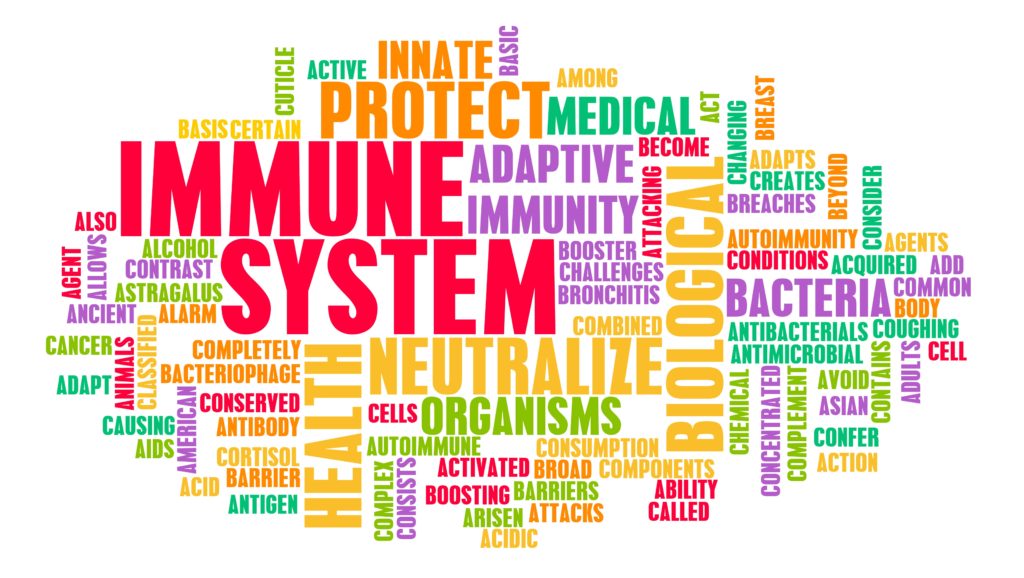Addiction is a disease that affects millions of people every year – either directly or indirectly. There is a lot of information to be found about different types of addiction, the negative legal and relational consequences associated with addiction, and the effects it has on the brain of the users. However, one area that is often neglected when addiction is talked about is the effect that it has on an individual’s immune system.
Different substances affect the immune system in different ways, but most weaken it – especially when drugs or alcohol are used over a long period of time. This means that individuals who are using or abusing substances are putting themselves at a higher risk of contracting diseases, infection and weakening organs, which is the body’s filtering system to fight the effects of drugs or alcohol.
How Does the Immune System Work?
The immune system is the body’s protection system. It is made up of cells, organs, and proteins which assist in preventing disease and infection. The immune system’s job is to filter everything that enters the body. Aside from the central nervous system, the immune system is the most complex body system. It functions by:
- Neutralizing germs (pathogens), like viruses and bacteria, and ridding the body of them
- Identifying and neutralizing damaging substances in the body
- Fighting its own cells that have changed negatively, like cancer cells
Effects of Drugs and Alcohol on the Immune System
The immune system, when not disrupted with damaging or harmful pathogens, keeps the body functioning smoothly. However, when pathogens are introduced to the body, it can drastically weaken the immune system. When this happens, the individual can become ill with infections or disease.
The risk to the immune system is not directly related to the drugs or alcohol themselves, but rather to the toll that those substances take on the body. Many drugs, especially alcohol, cause dehydration, physical and mental fatigue, lack of sleep, and unhealthy eating or lack of food, which can cause a weakened immune system. Whenever the immune system is in a weakened state, the body is at a higher risk for the invasion of infection and disease.
Alcohol and the Immune System
Drinking alcohol excessively can quickly lead to an immune deficiency, which can result in an individual being susceptible to certain diseases. Over time, alcohol abuse can result in trouble with the digestive system, damaging the cells that are responsible for secreting enzymes that the body needs for proper digestion. Long-term alcohol abuse or addiction can also lead to liver damage or failure. The liver is where the body stores vitamins, so its role is essential. Alcohol abuse may also affect a person’s ability to store sufficient amounts of protein.
Overall, alcoholism can result in autoimmunity, which is when the body begins to attack its own tissues. Maybe the most dangerous effect of alcohol abuse is associated with white blood cells in the body. White blood cells are responsible for getting rid of killer white blo0d cells. When they are not working in that manner, the individual is at a much higher risk of developing life-threatening diseases, like cancer.
Other Substances and the Immune System
Heroin abuse, as with other opioid drugs, can lead to addiction. Once a person is addicted to heroin, their thoughts and actions are consumed with getting and using the drug. This typically leads to neglect with personal health, like eating and sleeping regularly, which weakens the immune system. Just like with alcohol, heroin addiction can result in the digestive system not functioning properly, which in turn, results in the body not getting the proper nutrition and the individual having a weakened system overall.
Cocaine, amphetamine, and methamphetamine users are much more likely than nonusers to contract hepatitis, sexually transmitted diseases, HIV and other infections due to the effect that the drugs have on the immune system. These stimulants disrupt the proper function of a key protein system component. When this protein is not functioning, the body cannot fight off diseases and infection as it normally would.
Prescription opioids work by suppressing the immune system through a brain-to-body pathway. They begin a chain reaction which eventually leads to the suppression of three kinds of white blood cells. This suppression of blood cells weakens the user’s immune system, putting them at a heightened risk of infection and illness. That, along with the risk of addiction, makes prescribing and taking opioid painkillers dangerous.
Drug and Alcohol Treatment
Finding and taking part in drug or alcohol addiction treatment, like that offered at Serenity at Summit, is the best way to help those struggling with addiction. If you or a loved one is addicted to drugs or alcohol, you may consider inpatient or outpatient rehabilitation to help you. If you choose inpatient treatment, you will receive medical care that takes into account the toll that your substance abuse has taken on your body. You will likely receive vitamins and supplements along with a balanced diet, to help you in your physical recovery. If you attend outpatient treatment, you may have to seek help from your primary care physician to discuss your need for vitamins and supplements.
When you stop abusing substances, get the treatment you need for your addiction, and start taking better care of your physical health, your immune system will become stronger again, and often, body organs that have suffered damage are able to heal and become healthy again.

